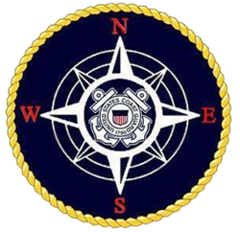(MARTINSBURG, W.Va.) — The National Maritime Center (NMC) receives more than 50,000 applications annually from mariners applying for merchant mariner credentials (MMCs). On average, more than 50 percent of those applications are incomplete or missing information, which causes delays in processing and frustration for mariners.
A total of 66,796 awaiting information (AI) reasons were issued in 2021 for MMC applications. Many MMC applications have multiple AI reasons. The five most common reasons a mariner will receive an AI letter are:
Certificates and documents are missing or incorrect
• Missing training/qualification certificates: Most commonly, proof of required training was missing. The most common certificates missing were first aid/CPR, rirefighting, and radar certificates. Also, many certificates did not have the Coast Guard course approval number on them, which is required. Other documentation often missing includes a copy of the TWIC, evidence of suitability, round trip documentation, and STCW assessments.
• Missing proof of citizenship: Passport, alien registration card, or permanent residence card was not provided.
• Unacceptable certificates or documents: Most commonly, these certificates or documents are outdated, unreadable or missing signatures.
• Suspended or revoked driver’s licenses: If the applicant’s driver’s license is suspended or revoked, the NMC will look at all National Driver Registry records.
Incomplete/incorrect application
• Signature and date problems: The application often is missing the mariner’s signature or the date put on the application is date of birth rather than date signed.
• Checkboxes on application not completed: Most common errors are missing National Driver Registry consent, missing best methods of contact, and missing type of credential requested. These boxes must be checked by the applicant.
• Oath not taken or missing signatures: Section 4 of the application contains the oath and certifications by the mariner applicant. Section 5 must contain the applicant’s signature and date signed. Also, for applicants seeking their first MMC, the oath must be taken and certified by an individual authorized to administer the oath.
• Application unclear regarding which credential is sought: Documentation provided does not match what the application says or description of endorsements desired is not a listed endorsement in 46 CFR. Applicants must specify what endorsements they want to be evaluated for.
Sea service documentation/recency of service
• Sea service letters: The employers have not signed, dated, or identified the waters operated upon. Also, applicants are commonly missing service time or do not meet the requirements for the credential requested.
• Small vessel sea service form: The form often has the incorrect addition of hours/days, or proof of vessel ownership is not provided.
• Tankerman: Proof of transfers/service/recency — Documentation submitted does not meet the requirements for amount of time, correct position, or dates performed.
• Rating forming part of an engineering watch (RFPEW) and rating forming part of a navigational watch (RFPNW) service while in training: Applicants are missing seagoing service that includes training and experience associated with engine room or navigational watchkeeping functions under the supervision of an engineer officer, or, for navigational, a master, mate, or qualified STCW deck rating.
• Tonnage/horsepower: Applicants are missing evidence of meeting the tonnage and horsepower requirements in order to qualify for certain credentials.
Fees
• Fees not paid or incorrect: Issuance fees must be paid in order for a credential to be issued and evaluation fees must be paid in order for an application to be reviewed. Other common problems include the Military-to-Mariner fee waiver request not completed properly, the total paid is less than required, insufficient funds provided, improperly written checks, and no tax ID number on business checks.
Drug tests
• Missing drug screen from the application package: A drug test is required for all transactions except endorsements, documents of continuity, duplicates, and STCW certificates.
• Incomplete documentation: Examples include missing collection date, missing medical review officer information, and an unsigned drug test result/random drug screen program letter.
• Incorrect drug screen used: The drug screen must be a Department of Transportation five-panel drug test from a Substance Abuse and Mental Health Services Administration accredited lab.
• Drug screen too old: It must be within six months of the date of the application.
What can you do to prevent delays in issuance?
• Apply at least 90 days in advance. Remember, for renewals you can apply up to eight months early with no change between your expiration and renewal dates.
• Use the Regional Exam Centers and Monitoring Units to review your application before submission. They are available for appointments in person or over the phone.
• Use the tools and resources on the NMC website. The application acceptance checklist and evaluator checklists are valuable tools.
• For general questions, contact the NMC Customer Service Center by emailing IASKNMC@uscg.mil or calling 1-888-IASKNMC (427-5662).
– U.S. Coast Guard


